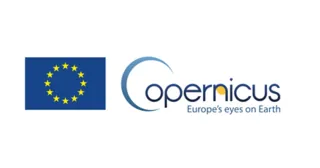Copernicus Programme
Copernicus is the Earth observation component of the European Union Space Programme, managed by the European Commission and implemented in partnership with the EU Member States, the European Space Agency (ESA), the European Organisation for the Exploitation of Meteorological Satellites (EUMETSAT), the European Centre for Medium-Range Weather Forecasts (ECMWF), the Joint Research Centre (JRC), the European Environment Agency (EEA), the European Maritime Safety Agency (EMSA), Frontex, SatCen and Mercator Océan.

Some of the key events about Copernicus Programme
- 2001The Global Monitoring for Environment and Security (GMES) initiative was launched as a joint effort between the European Commission and European Space Agency
- 2008The GMES program was renamed to Copernicus
- 2014The first Copernicus satellite, Sentinel-1A, was successfully launched into orbit
- 2014Delays in launching the first Sentinel satellites due to technical issues
- 2015Sentinel-2A was launched, providing high-resolution optical imagery for land monitoring
- 2015Budget constraints led to reduced scope of some planned missions
- 2016Sentinel-3A was launched, focusing on ocean and land monitoring
- 2016Data access issues reported by some users due to system overload
- 2017Sentinel-5P was launched to monitor air quality and atmospheric composition
- 2017Concerns raised about potential gaps in data continuity between older and newer satellites
- 2018Sentinel-3B was launched, complementing Sentinel-3A for enhanced ocean and land monitoring
- 2018Cybersecurity vulnerabilities identified in ground segment infrastructure
- 2019The Copernicus Emergency Management Service was activated over 100 times, providing crucial information for disaster response
- 2019Disagreements between EU member states on future funding allocations
- 2020Copernicus data played a vital role in monitoring the COVID-19 pandemic's impact on air quality and economic activities
- 2020COVID-19 pandemic caused disruptions to operations and data distribution
- 2021The Copernicus Climate Change Service released its annual European State of the Climate report, providing comprehensive climate data
- 2021Increased space debris posed growing risks to Sentinel satellites
Disclaimer: This material is written based on information taken from open sources, including Wikipedia, news media, podcasts, and other public sources.





























